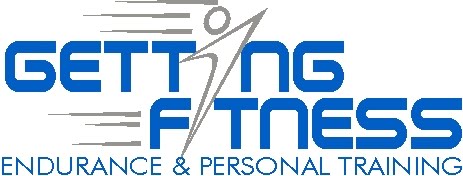I love schedules. I'll make a schedule to create a schedule - well, probably not that far, but you get the point. I will methodically plan out my workouts around my family life(wife and 2 kids), work schedule, my daily clients I have for GettingFitness, and various other endeavors I have going on at the particular time. On my schedule I block off time for swimming, biking, running, and weight training with no in-depth specific workouts, but I do include if it will be easy, long, race specific, tempo, etc. I then share the plan with my hopefully approving wife to get the 'OK'.
Awesome, I have a plan and am ready to get to work. Here's the kicker - I bet I've stuck to that schedule about 5% of the time! Things always come up - kid's activities change, spur of the moment commitments, doctor's appts, client's schedule changes, work, etc. Almost weekly, I need to make key changes, but there are rules that I follow to mitigate the possibility of injury and ensure that I have enough recovery to put forth a good effort for the next workout. These are the rules that I follow:
- don't do back to back speed or interval run sessions
- keep a few days between long bike and long run (except when approaching a race - it's good practice to run on tired legs every once in a while
- If I have to skip a workout, I'll skip weight training - it's not as important as swimming, biking, running
- if doing a big brick session, a recovery day should follow
- if my energy is drained I'm OK with bagging a workout for recovery purposes - one easy/recovery day is better than suffering through an entire week of below average workouts
- never do back to back weight training sessions - I do full body weight training in one day
- I try and have one easy and one harder workout each day(easy bike, big ring bike ride)
- most importantly, family comes first
When I have to throw my schedule out the window I manage to keep track of these workouts in my head and log them into a spreadsheet. The most important thing is to figure out what works for you, which takes time, experimentation, and trial/error. If you're questioning what you should do, go easy.
Wednesday, September 28, 2011
Wednesday, September 21, 2011
Setting Expectations for Clients
As a coach, it’s very important to set expectations of what you’ll do as a coach as well as what you expect from a client. The coach-client relationship is essential for reaching a milestone and getting the end result. If there is not enough information shared, communication lines broken, misunderstanding, or a lack of commitment from a client it makes things more challenging to accomplish the common goal. Most of the responsibility lies with the coach in this situation by asking the correct questions, engaging the client, and being proactive about feedback with a results-focused mindset.
At times, it is out of the coach’s control, which is why it’s important to set expectations for your clients and what is expected out of them. Below is a list that I use:
1) 100% effort - I’ve been in this business long enough to tell when I’m getting 100% commitment from a client, and when they’re just ‘going through the motions’. The 100% effort doesn’t necessarily pertain to the physical aspect of an all out, about-ready-to-pass-out effort type workout, but more about the mental toughness to get through a 2 hour Zone 2 controlled effort trainer ride in the middle of winter. This effort is 100% focused on staying in Z2 while keeping good form, proper nutrition and hydration.
2) Follow the Plan - When I create a plan, it’s important that it’s followed. I create specific training plans for clients based on their needs, goals, schedule, strengths and limiters. With that being said, my expectation is that plan will be followed. I understand that ‘life’ happens and that some days will be switched around, and other times some workouts won’t get done. My expectation is that a client won’t do something totally different in regards to exercise, intensity, or time from what’s on the plan – the plan is created with a purpose and a point. On the grand scheme of things, if you follow the plan you’ll get the results you want.
3) Ask questions/provide feedback - It is my responsibility to provide a routine or plan and also to explain the “why”. If the explanation is not clear or doesn’t make sense I encourage questions to make sure my clients understand the reasons why we do certain things. Providing feedback and asking questions about anything will help make the workout(s) more enjoyable and foster better communication and relationship.
4) Open communication - My expectation is that clients will be open and honest at all times. What I’m referring to is how they’re feeling overall, stress level, eating habits, straying off the path, or how the training is going. An open dialogue can help resolve many of the concerns, and advice can be given to get a client back on track and re-motivated to get back to work.
Setting expectations on both ends will provide a much more enjoyable experience for all parties involved and allow us to focus on the task at hand. What do you expect from your coach?
Subscribe to:
Comments (Atom)
